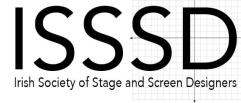World Theatre Day
Friday 27 Mar 2015
All day
The Message Author of the World Theatre Day 2015 is the Polish director Krzysztof Warlikowski.
Since its creation in 1962, World Theatre Day is celebrated on March 27th and represents for the Theatre community all over the world an occasion to underscore the diversity of this art form and to promote its impact on our contemporary societies.
The International Theatre Institute marks this global occasion each year by inviting a renowned theatre artist to write an international message. This message is translated into more than 20 languages and released throughout the ITI network (more than 90 ITI Centres and numerous Cooperating Members) and theatre organizations worldwide.
World Theatre Day Message 2015
The true masters of the theater are most easily found far from the stage. And they generally have no interest in theater as a machine for replicating conventions and reproducing clichés. They search out the pulsing source, the living currents that tend to bypass performance halls and the throngs of people bent on copying some world or another. We copy instead of create worlds that are focused or even reliant on debate with an audience, on emotions that swell below the surface. And actually there is nothing that can reveal hidden passions better than the theater.
Most often I turn to prose for guidance. Day in and day out I find myself thinking about writers who nearly one hundred years ago described prophetically but also restrainedly the decline of the European gods, the twilight that plunged our civilization into a darkness that has yet to be illumined. I am thinking of Franz Kafka, Thomas Mann and Marcel Proust. Today I would also count John Maxwell Coetzee among that group of prophets.
Their common sense of the inevitable end of the world—not of the planet but of the model of human relations—and of social order and upheaval, is poignantly current for us here and now. For us who live after the end of the world. Who live in the face of crimes and conflicts that daily flare in new places faster even than the ubiquitous media can keep up. These fires quickly grow boring and vanish from the press reports, never to return. And we feel helpless, horrified and hemmed in. We are no longer able to build towers, and the walls we stubbornly construct do not protect us from anything—on the contrary, they themselves demand protection and care that consumes a great part of our life energy. We no longer have the strength to try and glimpse what lies beyond the gate, behind the wall. And that’s exactly why theater should exist and where it should seek its strength. To peek inside where looking is forbidden.
“The legend seeks to explain what cannot be explained. Because it is grounded in truth, it must end in the inexplicable”—this is how Kafka described the transformation of the Prometheus legend. I feel strongly that the same words should describe the theater. And it is that kind of theater, one which grounded in truth and which finds its end in the inexplicable that I wish for all its workers, those on the stage and those in the audience, and I wish that with all my heart.
Krzysztof Warlikowski
Translation: Philip Boehm. Supported by Theatre Communications Group and the U.S. Center of ITI
About the Author
The Message Author of the World Theatre Day 2015 is the Polish director Krzysztof Warlikowski.
Since its creation in 1962, World Theatre Day is celebrated on March 27th and represents for the Theatre community all over the world an occasion to underscore the diversity of this art form and to promote its impact on our contemporary societies.
The International Theatre Institute marks this global occasion each year by inviting a renowned theatre artist to write an international message. This message is translated into more than 20 languages and released throughout the ITI network (more than 90 ITI Centres and numerous Cooperating Members) and theatre organizations worldwide.
World Theatre Day Message 2015
The true masters of the theater are most easily found far from the stage. And they generally have no interest in theater as a machine for replicating conventions and reproducing clichés. They search out the pulsing source, the living currents that tend to bypass performance halls and the throngs of people bent on copying some world or another. We copy instead of create worlds that are focused or even reliant on debate with an audience, on emotions that swell below the surface. And actually there is nothing that can reveal hidden passions better than the theater.
Most often I turn to prose for guidance. Day in and day out I find myself thinking about writers who nearly one hundred years ago described prophetically but also restrainedly the decline of the European gods, the twilight that plunged our civilization into a darkness that has yet to be illumined. I am thinking of Franz Kafka, Thomas Mann and Marcel Proust. Today I would also count John Maxwell Coetzee among that group of prophets.
Their common sense of the inevitable end of the world—not of the planet but of the model of human relations—and of social order and upheaval, is poignantly current for us here and now. For us who live after the end of the world. Who live in the face of crimes and conflicts that daily flare in new places faster even than the ubiquitous media can keep up. These fires quickly grow boring and vanish from the press reports, never to return. And we feel helpless, horrified and hemmed in. We are no longer able to build towers, and the walls we stubbornly construct do not protect us from anything—on the contrary, they themselves demand protection and care that consumes a great part of our life energy. We no longer have the strength to try and glimpse what lies beyond the gate, behind the wall. And that’s exactly why theater should exist and where it should seek its strength. To peek inside where looking is forbidden.
“The legend seeks to explain what cannot be explained. Because it is grounded in truth, it must end in the inexplicable”—this is how Kafka described the transformation of the Prometheus legend. I feel strongly that the same words should describe the theater. And it is that kind of theater, one which grounded in truth and which finds its end in the inexplicable that I wish for all its workers, those on the stage and those in the audience, and I wish that with all my heart.
Krzysztof Warlikowski
Translation: Philip Boehm. Supported by Theatre Communications Group and the U.S. Center of ITI
World Theatre Day Message 2015 by Krzysztof Warlikowski
(c) International Theatre Institute
Recorded in Warsaw on 16/03/2015 by the Mime Centre Berlin/ ITI-Germany.
ITI celebrates World Theatre Day
Our friends and colleagues gathered this morning @17 Eustace St to read the World Theatre day Message together and… enjoy some fabulous ITI cupcakes!
Irish Celebration of the World Theatre Day 2015
Paul Curley, Lian Bell, Aonghus Og McAnally, Noelle Brown and Cian O’Brien read the World Theatre Day message. Special thanks to Philly McMahon for directing and Mark Cantan for filming.

